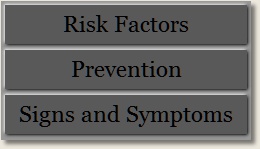




War Against Melanoma
The WAM Foundation
1478 Sunflower Street Lewis Center, OH 43035
Email: info@thewamfoundation.org
1478 Sunflower Street Lewis Center, OH 43035
Email: info@thewamfoundation.org
Melanoma Facts
• An extimated 76,100 cases of invasive melanoma will be diagnosed in the US in
2014.
• One person dies of melanoma every hour (every 57 minutes).
• One in 50 men and women will be diagnosed with melanoma during their lifetime.
• Melanoma is the most common form of cancer for young adults 25-29 years old and second most common form of cancer for young people 15-29 years old.
• The survival rate for patients whose melanoma is detected early before the tumor has penetrated the skin, is about 99 percent. The survival rate fall to 15 percent for those with advanced disease.
• The incidence of many common cancers is falling, but the incidence of melanoma continues to rise at a rate faster than that of any of the seven most common cancers. Between 1992 and 2004, melanoma incidence increased 45 percent, or 3.1 percent annually.
• Women aged 39 and under have a higher probability of developing melanoma than any other cancer except breast cancer.
• About 86 percent of melanoma cases can be attributed to ultraviolet (UV) radiation from the sun.
• One or more blistering sunburns in childhood or adolescence more than double a person's chances of developing melanoma later in life.
• A person's risk for melanoma doubles if he or she has had more than five sunburns at any age.
• Indoor ultraviolet (UV) tanners are 74 percent more likely to develop melanoma than those who have never tanned indoors.
• One person dies of melanoma every hour (every 57 minutes).
• One in 50 men and women will be diagnosed with melanoma during their lifetime.
• Melanoma is the most common form of cancer for young adults 25-29 years old and second most common form of cancer for young people 15-29 years old.
• The survival rate for patients whose melanoma is detected early before the tumor has penetrated the skin, is about 99 percent. The survival rate fall to 15 percent for those with advanced disease.
• The incidence of many common cancers is falling, but the incidence of melanoma continues to rise at a rate faster than that of any of the seven most common cancers. Between 1992 and 2004, melanoma incidence increased 45 percent, or 3.1 percent annually.
• Women aged 39 and under have a higher probability of developing melanoma than any other cancer except breast cancer.
• About 86 percent of melanoma cases can be attributed to ultraviolet (UV) radiation from the sun.
• One or more blistering sunburns in childhood or adolescence more than double a person's chances of developing melanoma later in life.
• A person's risk for melanoma doubles if he or she has had more than five sunburns at any age.
• Indoor ultraviolet (UV) tanners are 74 percent more likely to develop melanoma than those who have never tanned indoors.
Information on this site was obtained directly from the National Cancer Institute and The Skin Cancer Foundation, two excellent resources for detailed
information about melanoma. For more information, please go to:
National Cancer Institute - http://www.cancer.gov/cancertopics/types/melanoma
The Skin Cancer Foundation - http://www.skincancer.org
Disclaimer: The material contained on this site is for informational purposes only and is not intended and should not be construed to be a substitute for professional medical advice, diagnosis or treatment. You should not rely on any information contained on this site as a substitute for medical advice and always seek the advice of your physician or other qualified health provider with any questions or concerns you may have regarding a medical condition.
National Cancer Institute - http://www.cancer.gov/cancertopics/types/melanoma
The Skin Cancer Foundation - http://www.skincancer.org
Disclaimer: The material contained on this site is for informational purposes only and is not intended and should not be construed to be a substitute for professional medical advice, diagnosis or treatment. You should not rely on any information contained on this site as a substitute for medical advice and always seek the advice of your physician or other qualified health provider with any questions or concerns you may have regarding a medical condition.








